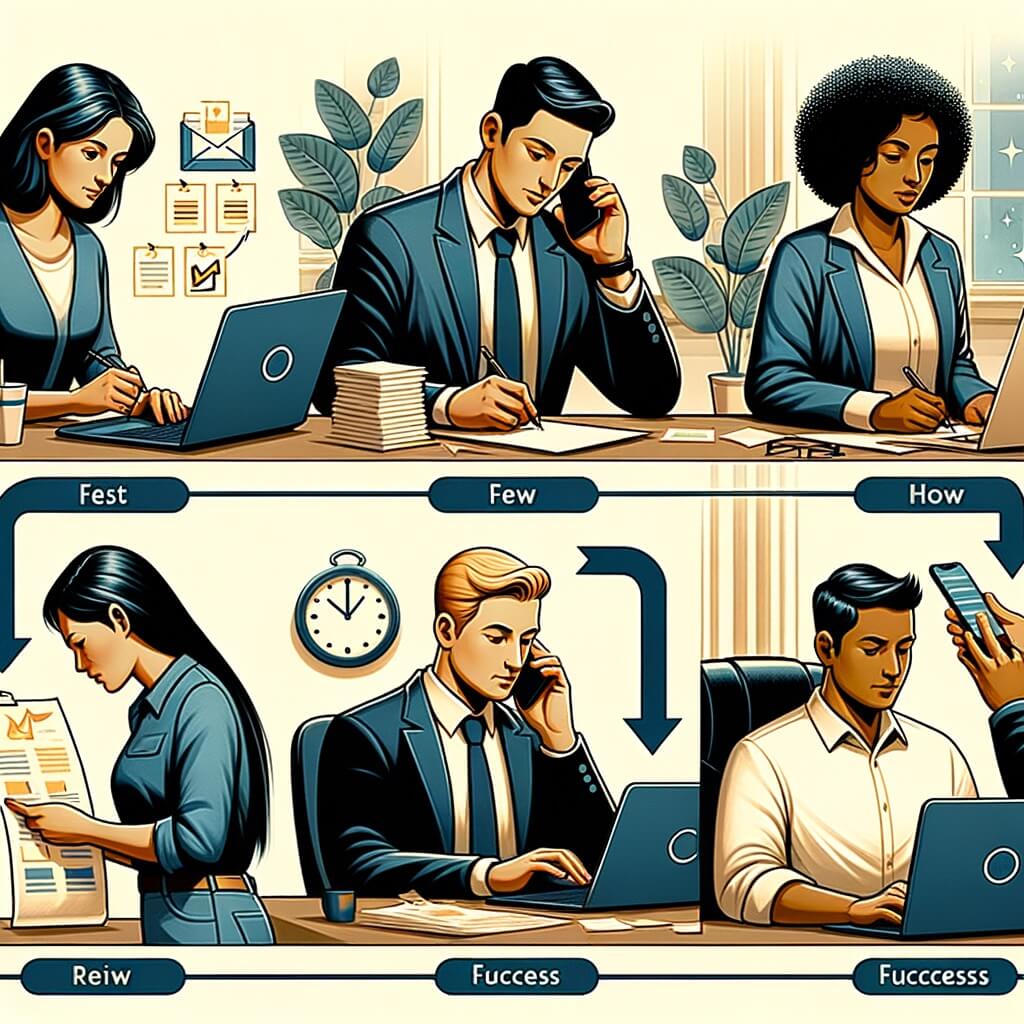Zig Ziglar: “Timely follow-up and follow-through will set you apart from the crowd and communicate excellence.”
Following up is an essential skill in any professional’s toolkit, whether you’re in sales, project management, customer service, or leadership. It’s about more than just checking off a task on your to-do list; it’s about building relationships, demonstrating reliability, and ensuring accountability. This article explores why following up is crucial for success and how you can enhance your skills in this area.
Why Following Up Is Crucial
1. Builds Trust and Reliability
When you follow up, you show that you value the person and their time. This builds trust and shows that you are reliable, which are cornerstone qualities in any successful relationship, professional or personal.
2. Ensures Accountability
Following up keeps everyone accountable. It closes the loop on conversations and projects, ensuring that all parties are on the same page and that commitments are honored.
3. Advances Projects
Projects often stall because of missed communications or unfulfilled commitments. Following up can push these projects forward, ensuring continuous progress and timely completion.
4. Improves Communication
Effective follow-up improves communication. It helps clarify misunderstandings and provides additional information that can be crucial for decision-making.
5. Increases Sales and Retention
In sales, following up can be the difference between closing a deal or losing it to inertia or a competitor. In customer service, following up on a customer’s issue can turn a potential negative experience into a positive one, enhancing customer loyalty.
How to Follow Up Effectively
1. Be Prompt
Timing is crucial in follow-ups. Be prompt but give the other person enough time to respond based on the context of your initial interaction.
2. Be Clear and Concise
State clearly why you are following up. This helps avoid any confusion and makes your communication more effective.
3. Add Value
Every time you follow up, try to add value to the conversation. This could be new information, a solution, or a suggestion.
4. Be Persistent but Respectful
Persistence is key, especially in sales. However, it’s important to balance persistence with respect for the other person’s time and boundaries.
5. Use Different Channels
Sometimes, mixing up your follow-up methods can be effective. If an email goes unanswered, try a phone call or a text message, depending on the formality and nature of the relationship.
Inspirational Quotes on Following Up
- James Cash Penney: “The art of effective listening is essential to clear communication, and clear communication is necessary to management success.”
- Stephen Covey: “Most people do not listen with the intent to understand; they listen with the intent to reply.”
- Lee Iacocca: “You can have brilliant ideas, but if you can’t get them across, your ideas won’t get you anywhere.”
- Zig Ziglar: “Timely follow-up and follow-through will set you apart from the crowd and communicate excellence.”
- Tom Peters: “Test fast, fail fast, adjust fast.”
Learning More and Improving Your Follow-Up Skills
Books
- “The Follow-Up Formula” by Michelle Moore: This book provides insights into making follow-up a natural part of your process, ensuring you get results without feeling pushy.
Online Courses
- LinkedIn Learning: Offers courses on effective communication and follow-up strategies in a business context.
Practice
- Role-playing: Practice your follow-up strategies with colleagues or mentors. Feedback will help you refine your approach.
Reflect
- Keep a journal: Reflect on your follow-up experiences. What worked? What didn’t? How can you improve?
Mastering the art of following up can significantly enhance your professional and personal life, leading to more opportunities and stronger relationships. By actively improving your follow-up skills, you position yourself as a committed, reliable, and respectful individual, qualities that are highly valued in any field.
